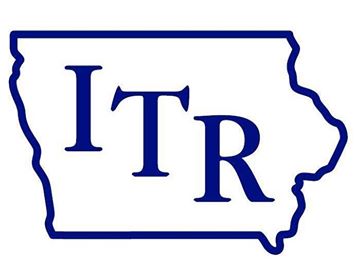While the pandemic’s heartbreak story of lives lost is still being written, the economic impact continues too. The fallout of COVID-19 will have a profound influence on many areas of life far into the future. As we have all seen, individual spending and personal interaction habits have already been impacted.
There is no doubt state government will be changed as well.
Three months ago, Iowa’s General Fund was looking at ending Fiscal Year 2020 with a sizable surplus on the $7.6 billion budget. Tax reform was a hot topic and legislators were working on making it easier to enter new careers, guaranteeing support is given to those who are genuinely in need, and increasing the fiscal accountability of local governments.
Legislators hit “pause” on March 16th and suspended the session. When they return on Wednesday, June 3rd, lawmakers will focus their efforts on helping Iowa recover from the personal and economic effects of COVID-19. Some legislative goals will be put on hold, but others are attainable and essential.
Difficult decisions ahead
Projecting state revenue has always been challenging. The present crisis will make it more difficult. TEF Iowa estimates Iowa’s state government will lose over $800 million in revenue this year. The Revenue Estimating Conference (REC) reduced its 2021 estimate from $8.24 billion to $7.88 billion. Legislators will use this new REC estimate to create next year’s budget.
ITR has identified issues and created policy solutions to help Iowa move forward:
Iowa’s State Budget: Freeze Government Salaries
A decision to hold the line on employee costs would help free up state money to address other potential budget shortfalls, and it is still more generous than the alternatives faced by many private-sector workers.
Taxes: Do No Harm
Iowans have responded to their government’s call to protect their neighbors. Lawmakers must return that protection in planning a budget that doesn’t count on them sending more dollars to the state.
Remove Excessive Licensing Regulations
During the COVID-19 outbreak, Governor Reynolds eased many licensing restrictions within the medical community. Those changes, and many more, should be made permanent.
Increase Government Transparency
The legislature should act to make sure that excessively burdensome fees do not hinder the public’s ability to hold their governments accountable.
COVID Liability Protection
Iowa businesses acting responsibly and with caution should not be held responsible for spreading the coronavirus if adequate protective measures were in place.
Eliminate the Welfare Cliff Effect
Childcare subsidies exist to bridge the gap between income and expenses for working families. Workers relying on childcare assistance reach a “cliff” where a slight increase in income disqualifies them for services worth substantially more than their pay raise.
Closing the Digital Divide: Increase Rural Broadband Access
Lawmakers can use these tools to connect more Iowans to broadband while using taxpayer dollars wisely. Iowa shouldn’t spend millions of dollars when they can least afford it in attempts to connect its citizens.
Visit our website to read more about these issues and solutions.












